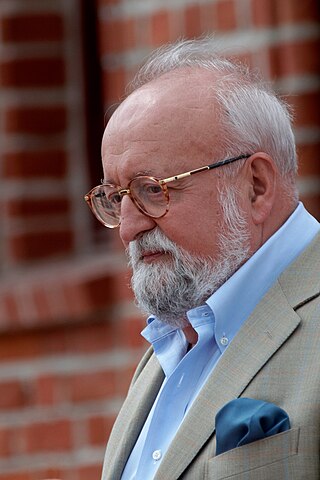
ProSiebenSat1 Welt is a German-language television channel developed for North American audiences.

Gestern war heute noch morgen is a song compilation of the German rock band Böhse Onkelz. It was released on three CDs. The box reached the third position in the German Media Control Charts which is really rare for best-ofs.

Ireen Sheer is a German-English singer. She had a top five hit on the German singles chart with "Goodbye Mama" in 1973. She went on to finish fourth at the Eurovision Song Contest 1974 representing Luxembourg, sixth at the Eurovision Song Contest 1978 representing Germany, and thirteenth at the Eurovision Song Contest 1985 representing Luxembourg again.

Lena Valaitis is a Lithuanian–German schlager singer who had her greatest success during the 1970s and 1980s. She finished second at the 1981 Eurovision Song Contest.

"Prometheus" is a poem by Johann Wolfgang von Goethe, in which the character of the mythic Prometheus addresses God in misotheist accusation and defiance. The poem was written between 1772 and 1774 and first published in 1789 after an anonymous and unauthorised publication in 1785 by Friedrich Heinrich Jacobi. It is an important work of the Sturm und Drang movement.

The Symphony No. 8 "Lieder der Vergänglichkeit" by Krzysztof Penderecki is a choral symphony in twelve relatively short movements set to 19th and early 20th-century German poems. The work was completed and premiered in 2005. The symphony has an approximate duration of 35 minutes. Penderecki revised the symphony in 2007 by adding a few more poem settings and the piece has expanded to around 50 minutes. Although given the designation Symphony No. 8, it was not actually the final symphony Penderecki completed before his death in March 2020; the Sixth Symphony, begun in 2008, was not completed until 2017.
The Swiss Book Prize is a literary award awarded annually by a jury on behalf of the Swiss Booksellers' Association. The prize amount is CHF 30,000. The award was instituted in 2008 following the example of the German Book Prize. Only German language works of authors living in Switzerland or of Swiss nationality are eligible.

Paola del Medico Felix is a Swiss singer.

"Nun freut euch, lieben Christen g'mein", or “Dear Christians, One and All, Rejoice” in English, is a Lutheran hymn, written in 1523 by Martin Luther. It is one of Luther's early hymns and considered by some as one of his finest. It was published as one of eight songs in 1524 in the first Lutheran hymnal, the Achtliederbuch. The Achtliederbuch contained four songs by Luther, three by Speratus, and one by Justus Jonas. It appeared also in 1524 in the Erfurt Enchiridion.
Bach's first cantata cycle refers to the church cantatas Johann Sebastian Bach composed for the somewhat less than 60 occasions of the liturgical year of his first year as Thomaskantor in Leipzig which required concerted music. That year ran from the first Sunday after Trinity in 1723 to Trinity Sunday of the next year:
- Trinity I, 30 May 1723: Die Elenden sollen essen, BWV 75
- Trinity II, 6 June 1723: Die Himmel erzählen die Ehre Gottes, BWV 76
- Trinity III, 13 June 1723: Weimar cantata Ich hatte viel Bekümmernis, BWV 21 restaged
- Trinity IV, 20 June 1723: Ein ungefärbt Gemüte, BWV 24, and Weimar cantata Barmherziges Herze der ewigen Liebe, BWV 185 restaged
- Nativity of St. John the Baptist, 24 June 1723: Ihr Menschen, rühmet Gottes Liebe, BWV 167
- Trinity V, 27 June 1723: no extant cantata
- Visitation, 2 July 1723: Herz und Mund und Tat und Leben, BWV 147 and possibly Magnificat in E-flat major, BWV 243a
- Trinity VI, 4 July 1723: no extant cantata
- Trinity VII, 11 July 1723: Ärgre dich, o Seele, nicht, BWV 186
- Trinity VIII, 18 July 1723: Erforsche mich, Gott, und erfahre mein Herz, BWV 136
- Trinity IX, 25 July 1723: Herr, gehe nicht ins Gericht mit deinem Knecht, BWV 105
- Trinity X, 1 August 1723: Schauet doch und sehet, ob irgend ein Schmerz sei, BWV 46
- Trinity XI, 8 August 1723: Siehe zu, daß deine Gottesfurcht nicht Heuchelei sei, BWV 179 and Weimar cantata Mein Herze schwimmt im Blut, BWV 199 restaged
- Trinity XII, 15 August 1723: Lobe den Herrn, meine Seele, BWV 69a
- Trinity XIII, 22 August 1723: Du sollt Gott, deinen Herren, lieben, BWV 77
- Trinity XIV, 29 August 1723: Es ist nichts Gesundes an meinem Leibe, BWV 25
- (30 August 1723, Ratswechsel: not part of the liturgical year, see below)
- Trinity XV, 5 September 1723: Warum betrübst du dich, mein Herz, BWV 138
- Trinity XVI, 12 September 1723: Christus, der ist mein Leben, BWV 95
- Trinity XVII, 19 September 1723: Bringet dem Herrn Ehre seines Namens, BWV 148
- Trinity XVIII, 26 September 1723: no extant cantata
- St. Michael's Day, 29 September 1723: no extant cantata
- Trinity XIX, 3 October 1723: Ich elender Mensch, wer wird mich erlösen, BWV BWV 48
- Trinity XX, 10 October 1723: Weimar cantata Ach! ich sehe, itzt, da ich zur Hochzeit gehe, BWV 162 restaged
- Trinity XXI, 17 October 1723: Ich glaube, lieber Herr, hilf meinem Unglauben, BWV 109
- Trinity XXII, 24 October 1723: Was soll ich aus dir machen, Ephraim, BWV 89
- Reformation Day, 31 October 1723 : possibly Weimar cantata Nur jedem das Seine, BWV 163 restaged; Alternatively an early version of BWV 80/80b?
- Trinity XXIV, 7 November 1723: O Ewigkeit, du Donnerwort, BWV 60
- Trinity XXV, 14 November 1723: Es reißet euch ein schrecklich Ende, BWV 90
- Trinity XXVI, 21 November 1723: Wachet! betet! betet! wachet! BWV 70
- Advent I, 28 November 1723: Weimar cantata Nun komm, der Heiden Heiland, BWV 61 restaged
- Christmas, 25 December 1723: Weimar cantata Christen, ätzet diesen Tag, BWV 63 restaged; Also Magnificat, BWV 243a and Sanctus in D major, BWV 238
- Second Day of Christmas, 26 December 1723: Darzu ist erschienen der Sohn Gottes, BWV 40
- Third Day of Christmas, 27 December 1723: Sehet, welch eine Liebe hat uns der Vater erzeiget, BWV 64
- New Year, 1 January 1724: Singet dem Herrn ein neues Lied, BWV 190
- Sunday after New Year, 2 January 1724: Schau, lieber Gott, wie meine Feind, BWV 153
- Epiphany, 6 January 1724: Sie werden aus Saba alle kommen, BWV 65
- Epiphany I, 9 January 1724: Mein liebster Jesus ist verloren, BWV 154
- Epiphany II, 16 January 1724: Weimar cantata Mein Gott, wie lang, ach lange? BWV 155 restaged
- Epiphany III, 23 January 1724: Herr, wie du willt, so schicks mit mir, BWV 73
- Epiphany IV, 30 January 1724: Jesus schläft, was soll ich hoffen? BWV 81
- Purification, 2 February 1724: Erfreute Zeit im neuen Bunde, BWV 83
- Septuagesima, 6 February 1724: Nimm, was dein ist, und gehe hin, BWV 144
- Sexagesima, 13 February 1724: Leichtgesinnte Flattergeister, BWV 181 and Weimar cantata Gleichwie der Regen und Schnee vom Himmel fällt, BWV 18 restaged in its Leipzig version
- Estomihi, 7 February 1723 and 20 February 1724 : Jesus nahm zu sich die Zwölfe, BWV 22 and Du wahrer Gott und Davids Sohn, BWV 23 restaged in its first Leipzig version
- Annunciation and Palm Sunday 25 March 1724: Siehe eine Jungfrau ist schwanger, BWV 1135 and Weimar cantata Himmelskönig, sei willkommen, BWV 182 restaged.
- (Good Friday, 7 April 1724: St John Passion, BWV 245, 1st version — Passion, not considered as a cantata part of the cycle)
- Easter, 9 April 1724: early cantata Christ lag in Todes Banden, BWV 4 restaged ; Weimar cantata Der Himmel lacht! Die Erde jubilieret, BWV 31 restaged
- Easter Monday, 10 April 1724: Erfreut euch, ihr Herzen, BWV 66
- Easter Tuesday, 11 April 1724: Ein Herz, das seinen Jesum lebend weiß, BWV 134
- Quasimodogeniti, 16 April 1724: Halt im Gedächtnis Jesum Christ, BWV 67
- Misericordias Domini, 23 April 1724: Du Hirte Israel, höre, BWV 104
- Jubilate, 30 April 1724: Weimar cantate Weinen, Klagen, Sorgen, Zagen, BWV 12 restaged in a version with a slightly modified instrumentation
- Cantate, 7 May 1724: Wo gehest du hin? BWV 166
- Rogate, 14 May 1724: Wahrlich, wahrlich, ich sage euch, BWV BWV 86
- Ascension, 18 May 1724: Wer da gläubet und getauft wird, BWV 37
- Exaudi, 21 May 1724: Sie werden euch in den Bann tun, BWV 44
- Pentecost, 28 May 1724: Wer mich liebet, der wird mein Wort halten, BWV 59 and Weimar cantata Erschallet, ihr Lieder, erklinget, ihr Saiten! BWV 172 restaged in its first Leipzig version (D major)
- Pentecost Monday, 29 May 1724: no extant cantata
- Pentecost Tuesday, 30 May 1724: Erwünschtes Freudenlicht, BWV 184
- Trinity, 4 June 1724: Höchsterwünschtes Freudenfest, BWV 194, originally a consecration cantata, restaged in its first Leipzig version

Gerald Hüther is a German neurobiologist and author of popular science books and other writings.
Michael Bohmeyer is a German entrepreneur, author and activist for universal basic income. In 2014, he founded the association Mein Grundeinkommen.

Thomas Straubhaar is a Swiss economist and migration researcher. He is a professor for international economic relations at the University of Hamburg.










